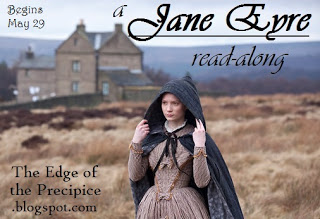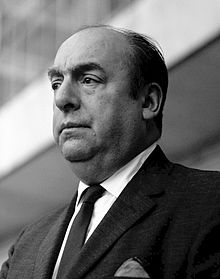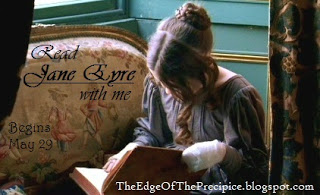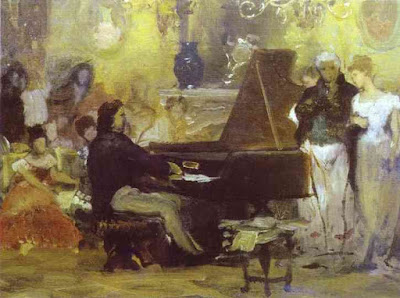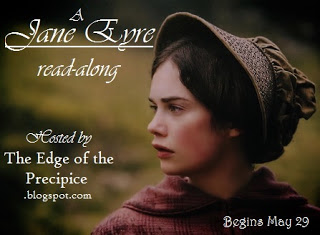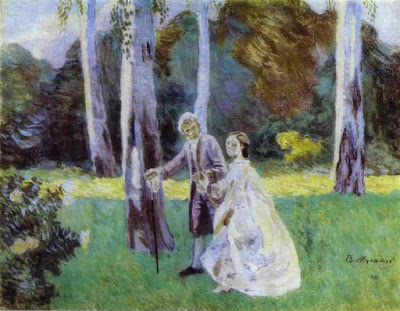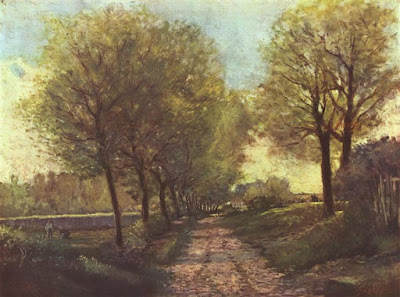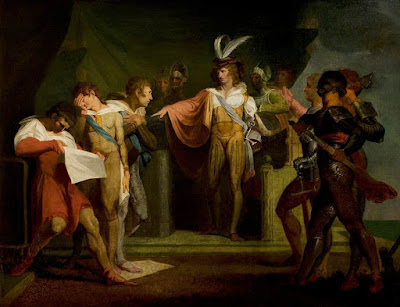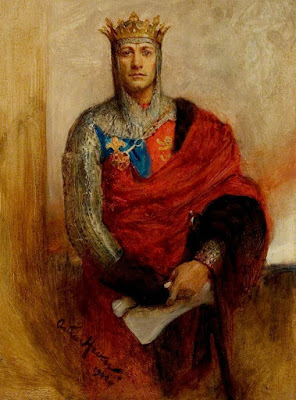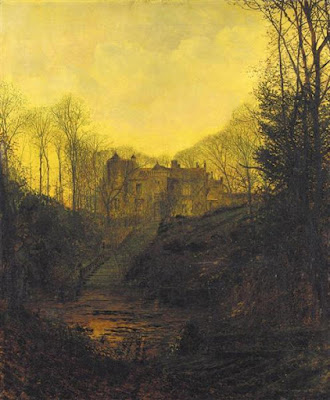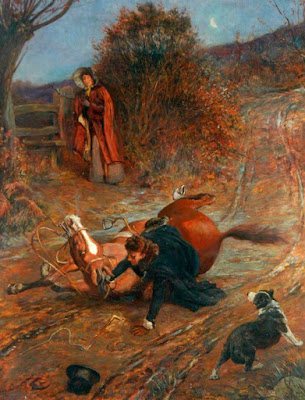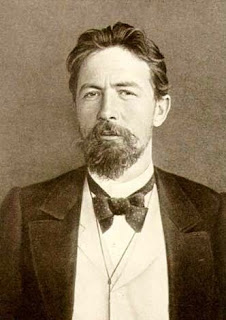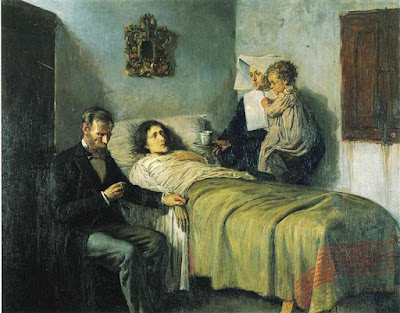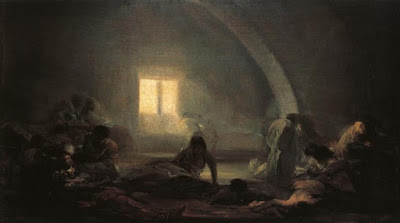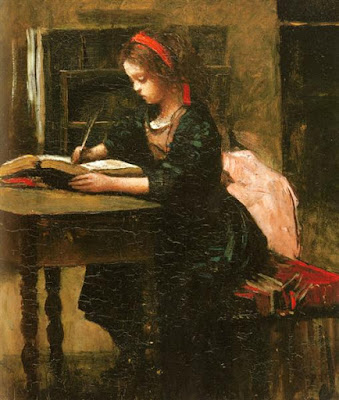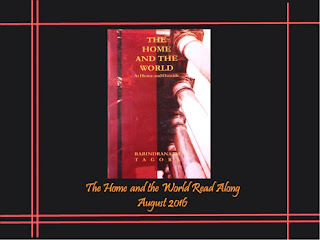Chapter XX
Jane hears a blood-curdling wail in the middle of the night and then frantic calls for Rochester’s assistance. He comes to assure his guests, and Jane retreats back into her room, dresses and waits. Somehow, she simply knows that she’ll be needed. Sure enough, Rochester fetches her to a room where Mr. Mason is lying in bed obviously injured, his blood-soaked linens nearby and a bandage covering his arm and shoulder. Rochester’s request is for Jane to remain with the wounded man while he leaves to fetch a surgeon, and when Mr. Mason is finally patched up, he is dispatched ……. no, not killed but sent quickly away in a carriage at the break of dawn. Rochester asks Jane to walk with him and then asks her obscure yet leading questions with regard to a mistake he may have made, and her judgement on it. He then teases her about his impending marriage and departs.
 |
| The Scream (1910) Edvard Munch source Wikiart |
Here begins Rochester’s provoking teasing of Jane about his marriage. Many dislike his actions, and I can sympathize. We know that he is falling in love with Jane and has little interest in Blanche Ingram, but Jane is convinced of their impending nuptials. His needling of her is based on an immature urge to draw out her feelings for him through jealousy and one cannot respect him for it. However, I see it as one flaw amongst a number of them in Rochester’s character, again making him very human. One hopes Jane can amend such behaviour, or at least accept him flaws and all, for which one of us is wholly faultless?
Chapter XXI
“Presentiments are strange things! and so are sympathies; and so are signs; and the three combined make one mystery to which humanity had not yet found the key. I never laughed at presentimetns in my life, because I have had strange ones of my own. Sympathies, I believe, exist (for instance, between far-distant long-absent, wholly estranged relatives asserting, notwithstanding their alienation, the unity of the source to which each traces his origin) whose workings baffle mortal comprehension. And signs, for aught we know, may be but the sympathies of Nature with man.”
Robert, a servant at Gatehead and Bessie’s husband, arrives to announce the death of the dissipated John Reed and his mother’s subsequent collapse. Jane is wanted by her, although no one appears to know why. Jane requests a week’s leave, which Rochester gives most reluctantly. Upon arriving at Gateshead, Jane meets the two Reed sisters Georgianna and Eliza, along with a flood of memories. Mrs. Reed, bedridden, appears to regret her treatment of Jane, giving her a long-past letter sent by her uncle, yet Mrs. Reed’s pride refuses to allow her to truly admit the error of her ways, and therefore she is unable to accept the forgiveness which Jane so freely gives her. Stubborn and implacable in life, so she is as she is overcome by death.
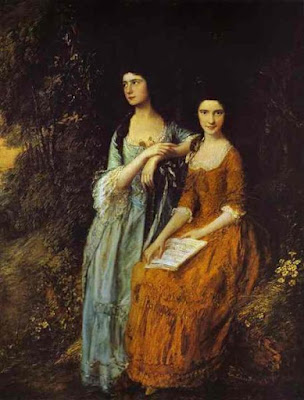 |
| The Linley Sisters (1772) Thomas Gainsborough source Wikiart |
The two extremes of the Reed sisters are used to advantage in the story. The dour, conservative, ultra-religious Eliza contrasted to the flighty, vapid, self-centred Georgianna perhaps is an illustration of how a lack of moral guidance and wanton self-will works on different personalities, rendering an extreme distortion of each, instead of each being tempered by principled and generous behaviour.
Chapter XXII
After a month’s absence, Jane returns to a rather disgruntled Rochester. He is waiting as she approaches Thornfield and admonishes her for the length of her stay, while also sending out “feelers” as to how much she missed him. Again, his upcoming marriage is alluded to, but Rochester presents it with a rather vague and enigmatic manner. In fact, his actions become mystifying as well, as he no longer visits the Ingrams, yet gives Jane even more consideration.
“Never had he called me more frequently to his presence; never been kinder to me when there —- and, alas! never had I loved him so well.”
 |
| Haymaking (1895) Camille Pissarro source Wikiart |
I love the complex, yet beautifully balanced relationship between Jane and Rochester. On one hand, she is in his power:
“…. the knowledge that I was nothing to him: but there was ever in Mr. Rochester … such a wealth of power of communicating happiness, that to taste but of the crumbs he scattered to stray and stranger birds like me was to feast genially ……”
Yet even though those words appear to minimize her sense of self and place her under his spell, she never loses her self-worth, her sense of right, or her grasp on happiness, either inside or outside his influence. Both speak of her ability to love deeply, yet with a strength of character that is quite astounding. I just love it!
“Thank you, Mr. Rochester, for your great kindness. I am strangely glad to get back to you; and wherever you are is my home —- my only home.”

